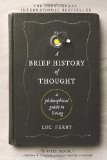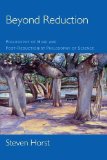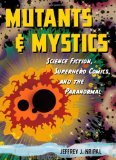new book – ‘New: Understanding Our Need for Novelty and Change’ by Winifred Gallagher
December 29, 2011
New: Understanding Our Need for Novelty and Change by Winifred Gallagher (Penguin, 2011)
Product description from the publisher:
Exploring our unique human genius for responding to the new with curiosity and creativity, the bestselling author of Rapt shows us how to embrace our changing world while living a fuller, saner life.
In today’s fast-paced world, it’s easy to feel overwhelmed by the mind-boggling number of new things-whether products, ideas, or bits of data-bombarding us daily. But adapting to new circumstance is so crucial to our survival that “love of the new,” or neophilia, is hardwired into our brains at the deepest levels. Navigating between our innate love of novelty and the astonishingly new world around us is the task of New: helping us adapt to, learn about, and create new things that matter, while dismissing the rest as distractions.
With wit and clarity, acclaimed behavioral science writer Winifred Gallagher takes us to the archaeological sites and neuroscience laboratories exploring our species’ special affinity for novelty. All of us are attuned to things that are new or unfamiliar because they convey vital information about potential threats and resources. As individuals, however, we vary in how we balance the sometimes conflicting needs to avoid risk and approach rewards.
Some 15 percent of us are die-hard “neophiliacs” who are biologically predisposed to passionately pursue new experiences, and another 15 percent are “neophobes” who adamantly resist change.
Most of us fall squarely in the spectrum’s roomy middle range. Whether we love change, avoid change, or take the middle path, neophilia plays a crucial role in all of our lives. No matter where we sit on neophilia’s continuum, New shows us how to use it more skillfully to improve our lives.
At this time of unprecedented change- when the new information we handle daily has quadrupled in the past thirty years, with no sign of slowing-we must look beyond such secondary issues as voracious consumerism, attention problems, and electronics addiction to refocus on neophilia’s true purpose: to learn about and create the new things that really matter. This big-picture perspective has long been missing, and New will jump-start that discussion by offering the tools we need to control our love of the new-rather than letting it control us.
Google Books preview:







